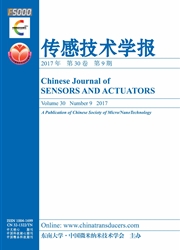

 中文摘要:
中文摘要:
外星球的未知环境要求星球车能够稳定且精确地自定位。我们首先引入了一种由中心计算机、星球车和无线传感器网络构成的分布式星球车定位系统模型。接着,结合粒子滤波和卡尔曼滤波的各自特点,提出了基于粒子滤波一扩展卡尔曼滤波(PKF)星球车导航的定位算法。PKF使用粒子滤波获取车体初始位置估计,之后使用扩展卡尔曼滤波继续跟踪星球车。当星球车遇到短暂无信号等情况时,PKF会根据系统状态在两种滤波算法中切换。仿真结果表明PKF定位算法具有很高的精度和稳定性以及较低的计算复杂度。
 英文摘要:
英文摘要:
The unknown environment of planets in outer space requires that planetary rover localize itself accurately. A distributed planetary rover localization system is introduced first, which is composed of central computer, planetary rover, and wireless sensor network. On basis of this model, we propose a novel location algorithm PKF (particle filter-extended Kalman filter) PKF has two modules, it first uses particle filter to acquire estimates of rover's position. Then, it randomly samples estimates as the initial estimate of extended Kalman filtering. When sensor silence and other emergency events happen, PKF switches between the two filtering modules. The experiment results illustrate that PKF is a robust algorithm with high accuracy and computing efficiency.
 同期刊论文项目
同期刊论文项目
 同项目期刊论文
同项目期刊论文
 期刊信息
期刊信息
